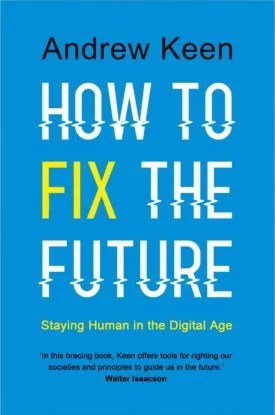Subscribe to my Digital Education ezine and enter for the next prize draw, which will be run this week.
Existing subscribers know that I frequently run prize draws and/or have special offers. Earlier this term, for example, subscribers were offered the chance to win a copy of one of the following books:
Teaching Computing in Secondary Schools, by William Lau;
Computer Science Teacher, by Beverly Clarke;
Enhancing Learning and Teaching with Technology: What the research says, Edited by Rosemary Luckin.
This time there will be two lucky winners. The books on offer are the following:
The BBC Micro:Bit User Guide
The Official BBC Micro:bit User Guide, which I reviewed in the Feb/March 2018 issue of Teach Secondary magazine. I think it's a very useful book, as it covers programming concepts in three programming languages. It's a handy reference book, and readable too!
The guide shows you how to create a program, read from inputs and create a game, in each of the three languages. So you could use the book to compare and contrast the way the different programs set about achieving the same ends.
There are also advanced projects, such as how to make wearable technology from a Micro:bit.
Thanks to Wiley for offering this book as a prize.
How to fix the future, by Andrew Keen is the other prize on offer. Keen caused a bit of a stir in 2007 in a book entitled The Cult of the Amateur, in which he was fairly disparaging about citizen journalists. Interestingly, a review I wrote at the time highlighted several trends that have become more familiar, such as fake news and the occasional lack of journalistic accuracy (even when the people concerned are completely honest and trustworthy), and which I cover in more detail in my chapter about how research is reported, in Enhancing Learning and Teaching with Technology: What the research says, by Rose Luckin (Ed). Subscribers to Digital Education will be given access to that review, which is stored deep in the Freedman archives!
How to fix the future
Keen's latest book "investigates the best (and worst) practices in five key areas – regulation, innovation, social responsibility, consumer choice and education – and concludes by examining whether we are seeing the beginning of the end of the America-centric digital world." (Taken from the book description on the Atlantic Books website.)
When Web 2.0 arrived in the early 2000s the narrative (I hate that term!) was all about how everyone has an equal voice on the web. These days, with companies playing fast and loose with our data, which we give away in order to enjoy access to some great tools, there's a feeling that something went wrong somewhere along the line. I haven't read Keen's book yet, but it sounds to me like it's very timely, and if his 2007 book is anything to go by it won't pull its punches.
Thanks to Atlantic Books for offering this book as a prize.
Because of different terms of entry, I'll be running two prize draws at the same time, one for each book. There is nothing to prevent subscribers from entering both, if they are eligible.
To be eligible to enter either draw, you have to be a subscriber to Digital Education. That's easy: just go to Digital Education and fill out the form. I use a double opt-in system, meaning you will be asked to confirm your desire to subscribe.
Unfortunately, for this prize draw there are restrictions regarding country of residence. The Micro:bit guide competition is open only to subscribers from the UK and Ireland. How to fix the future is available to subscribers from anywhere in the world except North America, including Canada, simply because there is a separate North American edition. I suppose subscribers living in non-eligible countries could move abroad, but it would probably be cheaper to buy the book!
As I said earlier, I will be running the draw this week, probably Friday, so if you fancy your chances (or even if you don't), sign up now.













